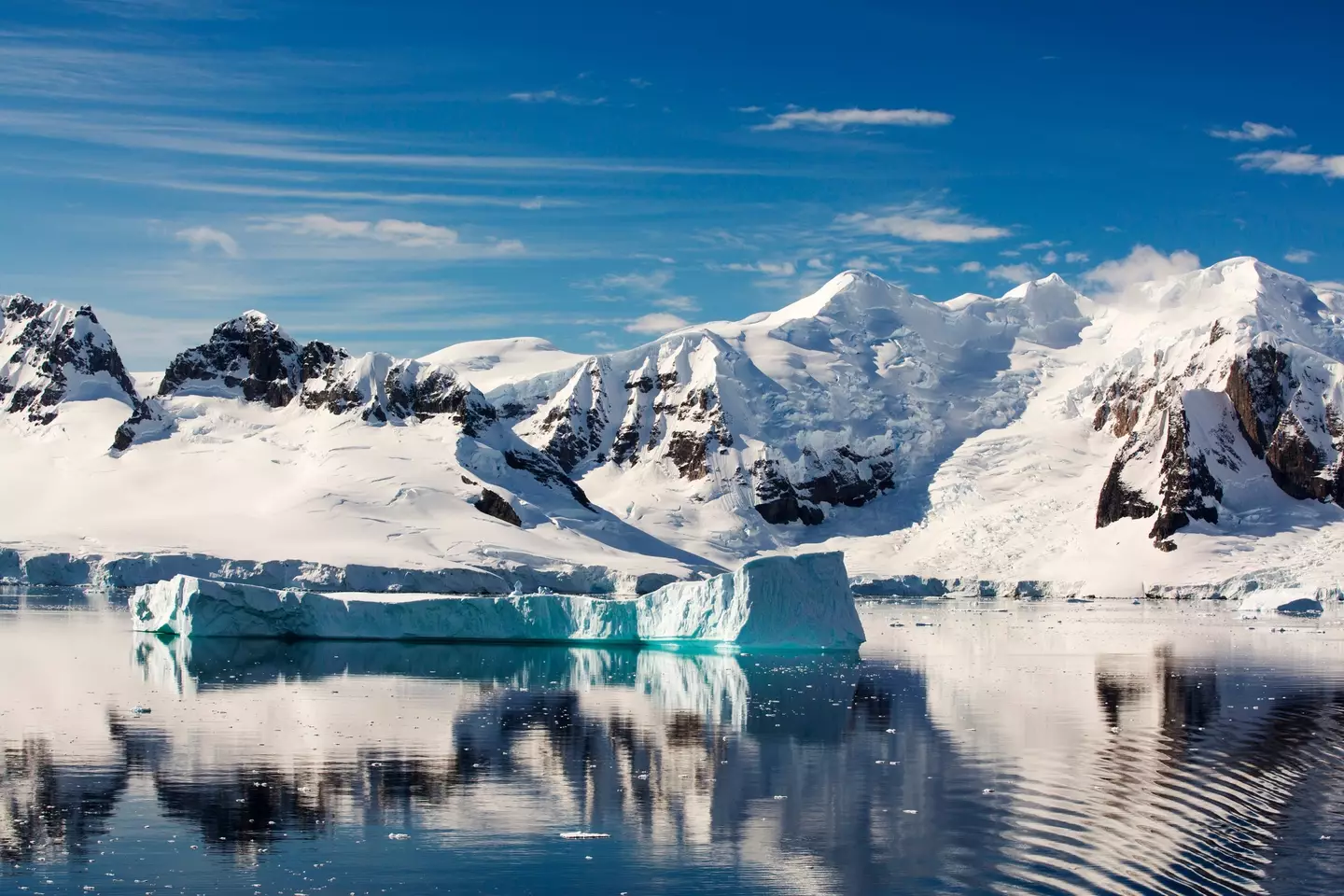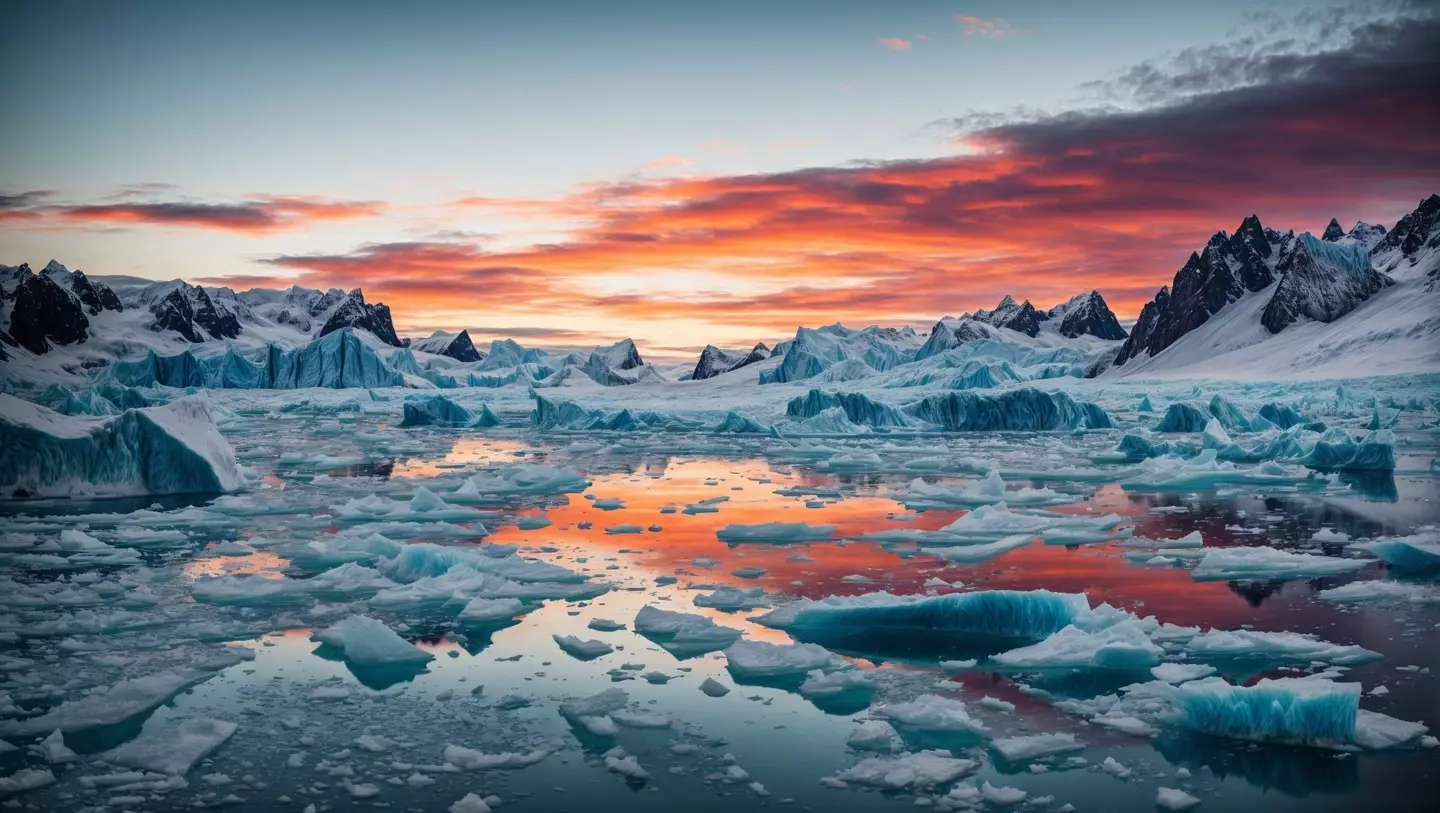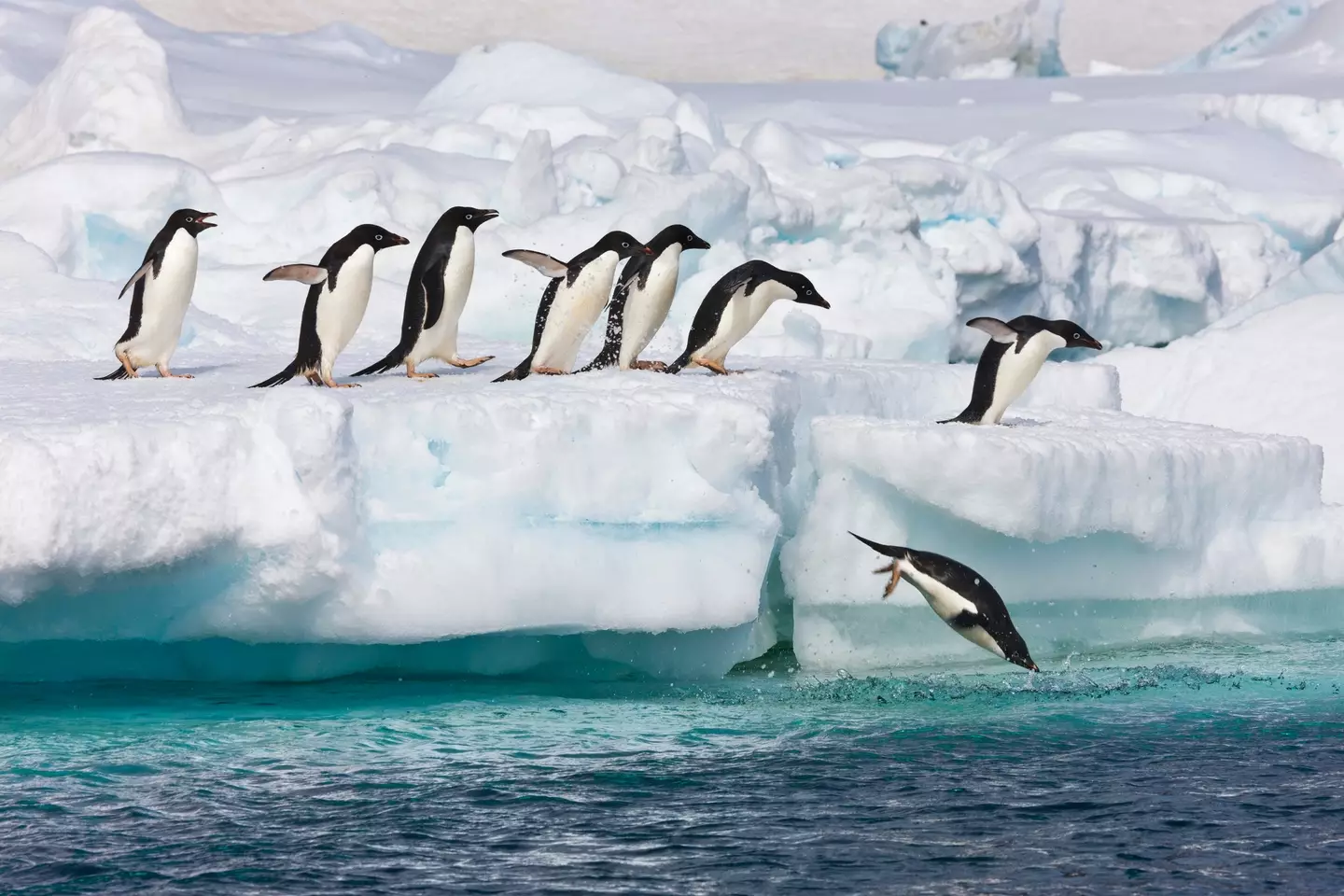
The record-breaking changes taking place in the Antarctic show the real time effects we are having on our planet.
Climate change has been a buzzword for a long time, and we have switched up many aspects of our lives to try and combat it.
Electric cars are increasingly common on the roads, and recycling and preventing food waste are age-old actions.

Advert
But the effects of how we live are becoming more and more obvious, especially in places like the South Pole.
It was there that last year, the Antarctic sea ice had historically low levels - in fact, it had 2 million square kilometers (772,204 square miles) less than usual.
A new study suggests that there is one single factor that has caused this - climate change.
Human activity, which includes things like burning fossil fuels, cutting down forests and farming livestock, is causing the Earth’s temperature to rise which is making the ice melt.
Without our influence, this amount of ice loss would only happen roughly once every 2,000 years.

Rachel Diamond is the lead author from the University of Cambridge and the British Antarctic Survey, and in a statement, she said: “According to the models, the record-breaking minimum sea ice extent would be a one-in-a-2000-year event without climate change.
“This tells us that the event was very extreme – anything less than one-in-100 is considered exceptionally unlikely.”
Caroline Holmes, a co-author of the study from the British Antarctic Survey, added: “Strong climate change – i.e. the temperature changes we’re already seeing, and those expected if emissions continue to rise rapidly – in the models makes it four times more likely that we see such a big decline in sea ice extent.
“This suggests that 2023’s extreme low was made more likely by climate change.”

It’s only been since 2015 that the Antarctic ice has been in rapid decline, compared to the Arctic which has notably been losing ice since the late 1970s.
Antarctica has had several years of record lows, first in 2017, then 2022, and most recently in 2023 when it reached a dismal record decline.
Louise Sime, another co-author on the study from the British Antarctic Survey, said: “The impacts of Antarctic sea ice staying low for over twenty years would be profound, including on local and global weather and on unique Southern Ocean ecosystems – including whales and penguins.”
Scientists reckon that the ice loss from last year could take at least 20 years to return to normal, which is bad news for its wildlife.
They might be suffering the impact of man-made problems for years to come.